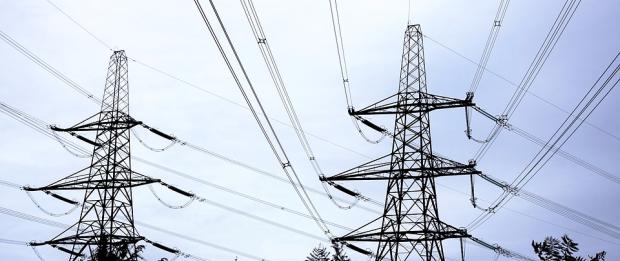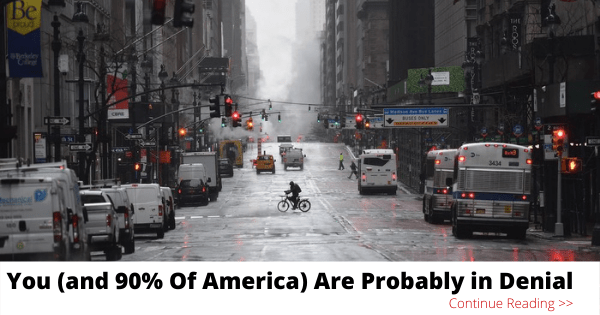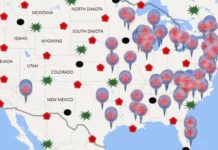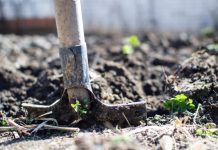Finally, it’s happening and you hear it … or rather, you don’t hear it. You’re hearing none at all. It all seems so quiet. It must have been like this before all the vehicles and machines came into our lives. It just seems like things have come to a halt, like the power grid has gone down. Oh wait, wait, the power grid has gone down. Now, what do we do?
The nightmare scenario is the failure of the grid, whether by an EMP attack, terrorism or cyberwarfare – all we depend on to come to a complete stop. If ever there was a daunting survival situation for us to face, this is it. Modern society is so dependent on electrical power to function that the loss of the grid will leave the loss of what to do for most people.
Some have pointed to the loss of the grid as taking us back to the 1800s, but it’s not … it’s worse. Our ancestors, who lived back in the 1800s, at least understood how to do without all the things we would do without. And we won’t. For the most basic of necessities, we will have to rely on ourselves and our own resourcefulness. Things that are now produced for us by our networks will no longer exist, unless we can replicate them ourselves. That’s exactly what, if we want to live, we’ll have to do.
So, here’s my “top 11” list of stuff that we’re going to need to have accessible, so that we can fulfill our own needs when they can no longer be met by society.
#1. Heating our homes is the first thing we’d better concern ourselves with. Of all the things that in a grid-down situation could kill us, hypothermia is the quickest and easiest killer. Without power, it doesn’t matter what heating source we’re used to using … it’s going to be out. We’ll need something else.
This implies heating with wood for most of us, using a fireplace or wood-burning stove. Of the two, the most heat will be provided to us by the wood-burning stove. It’s easier to install as well. But fuel is the big issue. How much firewood have you got? Where are you going to get more? How do you take it home?
Related: 9 Items For The Winter Prepper Checklist
#2. Without electricity, we would have no municipal water system, with fresh, clean water delivered right to our homes. While it might run for a day or two, before the gas is used up for the generator and the water runs out in the tanks; but that’s about it. We will either have to draw water from a nearby river or lake after that, or we will have to harvest it from rainwater or a well.
You can be sure it’s not enough, no matter how much water you have stockpiled. And a water-filled swimming pool will only last so long. You will need more than that. So it’s best to be ready to harvest your water right from nature, preferably on your own property.
Related: How To Calculate Your Water Needs For Survival
#3. You’ll have to presume, in a post-disaster country, that all water is suspicious. That means drinking only water that has been filtered by you. While you can use unpurified water for a lot of things, in no way can you drink it. That means, at a minimum, purifying enough water to drink, cook and wash the dishes.
For water purification, most people depend on filtration. Nothing is wrong about that. A variety of excellent water filters are on the market. But when you run out of filters, what are you going to do? In addition to the filtration system, you’ll need something else to ensure that you will continue to have clean water to drink.
Related: What Is The Best Way To Store Water For SHTF?
#4. Most of us use either electric or gas stoves to cook. Even so, gas stoves are still based on electricity. Although most gas pumping stations produce their own electricity to operate their pumps, it is likely that they will also shut down. Even if they do not shut down automatically due to the lack of energy, as a safety precaution, they will possibly be shut down by the operators.
This will suggest that without our most popular method of cooking food, we are left out. Once again, the most likely substitute would be wood, with people turning to barbecue grills or cooking in fire pits. Using solar power for cooking, with some kind of solar oven, is another choice.
Related: No Gas, No Electricity… How To Cook Indoors Without Smoke
#5. Building an inventory of food is the start of prepping for most people. This is something that just never seems to come to an end. There’s still a drive to hit the next stage no matter how much you have, growing your preparedness just a little bit more.
Do not forget to still have some off-site food caches, in case you’re forced to leave your house. You never know what could make you bug out, and maybe you can’t take it all with you.
Meat, of course, is not the only thing you need to store, but it’s the most noticeable. From fuel to sewing needles, you’re going to need everything. So, even if you’re starting with food, be prepared to extend your thought and add everything else you need.
Related: Year-Long Guide to Stockpiling
#6. It will finally run out, no matter how large your food inventory is. That’s why so many preppers turn to produce their own food at home. Even if you have a large stockpile to use, increasing your own will allow you to expand the stockpile and live longer.
There’s a fair possibility that it will take over a decade to get things back up again in the case of those devastating triggers of the grid going down. If that is the case, it is doubtful that, no matter how huge it is, your food inventory would be adequate. If you live or not will rely a great deal on your ability to produce enough food to fulfill your needs.
Related: Trees That Can Be Tapped For Sap And Syrup
#7. If you’re going to grow all of that food, you’re going to have to hold it, too. With our ancestors trying to survive the most common tragedy of all … Old Man Winter, food preservation possibly began. Without the ability to hunt or gather, the only food that those ancestors had to keep them alive through the winter was whatever they had gathered and dried.
Today, we have a range of accessible methods of food preservation to choose from. But you’d better learn how to do it, as well as stockpile the supplies needed. Don’t skimp on salt, as this is important for almost any food preservation process.
Related: How To Pickle Meat
#8. Our own well-being is one of the trickier places that we have to be prepared to take care of. Though doctors and other health care workers won’t necessarily disappear, the resources they need will be severely limited. You could just be out of luck if you don’t have your own.
But you’d better have a pretty good idea of how to use them, too, not just depending on getting those materials. You won’t be able to just go to the corner station and fill up your car’s tank without electrical input. So you would not be able to get somewhere where there are doctors anyway. Critical things, such as first aid, would become paramount in that situation.
Related: What You Should Know Before Stockpiling Antibiotics
#9. While waste disposal is not a glamorous survival aspect, it is a necessary one. One of the ways in which disease spreads around is human waste. Without the opportunity to quarantine it or dispose of it, one of the most dangerous items you deal with may become your body’s own waste. It’s not all that high tech a solution to digging an outhouse, but it’s one that takes time, muscle and tools. It’s also good to have some lime on hand.
It’s not the only kind of waste you’re going to be concerned with, of course, but the most dangerous. What about the food packets and other materials you’re going to use? In order to prevent it from taking over and showing everyone how well you’re stocked, you’ll need to have a way to deal with that too. You would also have to deal with the cans and the ashes from the storm, even though that means nothing more than burning it.
Related: A Prepper’s Guide to Waste Disposal
#10. Lighting isn’t a need as much as it is a convenience. During daytime, you should only do it and then go to sleep when the sun goes down. Nevertheless, we are used to getting more hours in the day to use, thanks to the illumination of our homes. Finding a way of doing that would give you more available time for your many survival activities after the power goes out.
I am a strong believer in flashlights, but I appreciate their drawbacks as well. When your battery supply runs out, you can not do the least bit of good with those fancy tactical flashlights and headlamps. Something easier, like candles and oil lamps, you need to return to. Have you got some way to make more oil?
Related: 10 Foods Not to Store
#11. Chances are, with everything mentioned above, that you will inevitably draw the attention of those people who are not prepared. You can count on them knocking on your door when that happens, asking you for help. It is up to you whether or not you are helping them, but the fact is that you can’t feed the world.
Turning away individuals is just a temporary solution. They’ll be there, once again, trying. If you keep denying support, they will finally come ready to take it; and if that’s what’s required to get what you have, take your life as well. Just like anything else, you’ve got to be ready for that eventuality.
Home security is more than just firearms and ammunition purchases. You have to make your home defensible, making it into a fortress in principle, ideally without doing so in an obvious manner. You’ll also need a defense strategy that you’ve practiced, so that when the time comes, you know what to do.
That’s my list, and it’s just the basics, really. I can think of a lot of other stuff that I would add, like the opportunity to make your own instruments and fix them. But those are not the fundamental requirements; they are more like additional useful skills to thrive and restore society in the long term. What else will you add to this list?





















